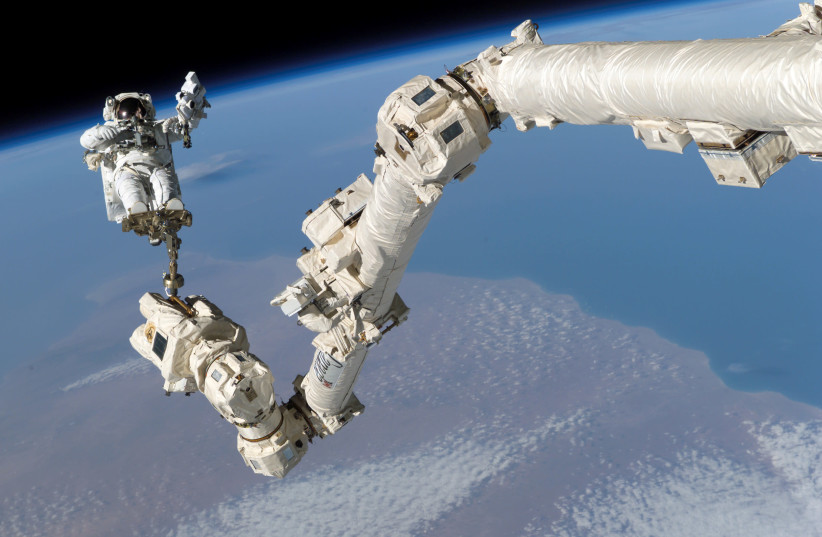A NASA spacewalk to replace a faulty antenna system on the International Space Station (ISS) was delayed on Monday evening, after a debris notification was received.
"The evening of Monday, Nov. 29, NASA received a debris notification for the International Space Station," announced NASA on Tuesday morning. "Due to the lack of opportunity to properly assess the risk it could pose to the astronauts, teams have decided to delay the spacewalk until more information is available. The space station schedule and operations are able to easily accommodate the delay of the spacewalk."
The spacewalk was meant to replace an S-band antenna subassembly which transmits low-rate voice and data with flight controllers on the ground. The spacewalk was going to be livestreamed on NASA TV.
When the spacewalk does take place, it is expected to take about six and a half hours.
It is unclear as of yet if the debris in question was generated by a Russian anti-satellite weapons test which took place earlier this month.

Earlier this month, the US State Department announced that Russia had "recklessly conducted" an anti-satellite missile test against a Russian satellite, generating thousands of pieces of debris which put the International Space Station and other equipment in orbit at risk.
State Department spokesperson Ned Price stated at the time that the missile test generated over 1,500 pieces of trackable orbital debris, as well as hundreds of thousands of pieces of smaller orbital debris that "now threaten the interests of all nations."
"In addition, this test will significantly increase the risk to astronauts and cosmonauts on the International Space Station as well as to other human spaceflight activities," said Price. "Russia's dangerous and irresponsible behavior jeopardizes the long term sustainability of our outer space and clearly demonstrates that Russia's claims of opposing the weaponization of space are disingenuous and hypocritical. The United States will work with our allies and partners to respond to Russia's irresponsible act."
Jonathan McDowell, an astrophysicist at the Harvard-Smithsonian Center for Astrophysics, tweeted that the satellite targeted by Russia was likely the Cosmos-1408, a Soviet Electronic and Signals Intelligence satellite launched in 1982 which stopped working around 1984.
The incident earlier this month caused crew on the ISS to temporarily take shelter at the time. The ISS was reportedly transiting through the debris field as often as once an hour.
